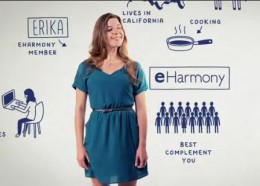Economic Theory of Dating Websites

For New York Times Magazine, Shaila Dewan looks at whether it’s worth it to pay for dating websites like eHarmony that charge a monthly fee. Your $60/month doesn’t mean there is a human middle man actually vetting potential dates (algorithms don’t count), but paid sites do act as their own filter:
If anyone can wink at you free on a dating website, or for that matter beam in a job résumé, their actions don’t mean much. On the other hand, if someone fills out hundreds of questions and pays $60 a month — or in the case of a job applicant, researches a company and writes a detailed proposal — it signals a much deeper interest. Academic economists, in fact, use this sort of signaling in their own hiring process. When top-tier candidates are interested in working at lower-tier schools — for reasons of geographical preferences or spousal considerations, perhaps — they are encouraged to send a special “winking” signal to schools that might otherwise consider them out of their league.
I can’t tell you how many times friends and I have shared outrage over a guy one of us met on a dating website who in the end, wasn’t really looking for something long-term. Not that we ever signed up to these places as paying customers (does it make me sound old that my dating site of choice was Nerve.com?) — we winked our winks without a surcharge.
Maybe pay-to-play would have been a good filter, though I suspect the cowardice of men transcends all intention, paid or otherwise.
Plus, eHarmony has a crap history with LGBTQ issues, and they once rejected my friend’s mom for not seeming happy enough in her personality assessment (true story), so I hate them. This is interesting, though:
The vaunted matching algorithm, he says, doesn’t really do that much that you can’t do for yourself. And as much as we may appreciate having our choices limited, if only to save us from being overwhelmed, from a purely economic standpoint, there is no benefit to limiting your own options, even if it means getting sucked into a time-consuming rabbit hole.
What is more valuable, Piskorski says, is that eHarmony limits its other members’ choices. In other words, it reduces the competition and makes the market smaller. That means that people whose highly visible characteristics might otherwise disqualify them from consideration (short men, older women) are more likely to get a fair hearing on the site.
Let’s just save ourselves $60/month and give everyone a fair hearing IRL.
Support The Billfold
The Billfold continues to exist thanks to support from our readers. Help us continue to do our work by making a monthly pledge on Patreon or a one-time-only contribution through PayPal.
Comments